Bali has long been a dream destination for travelers worldwide, but as we move into 2025, the island is taking significant steps toward sustainability. The shift from mass tourism to responsible, high-quality travel experiences is becoming more evident, with a focus on eco-conscious accommodations, immersive cultural activities, and technological innovations that make travel both smarter and greener.
If you’re planning a trip to Bali this year, here are the top sustainable travel trends in 2025 that will help you explore the island while preserving its natural beauty.
The Rise of Experiential Travel

Image by photobyphotoboy
Travelers are no longer satisfied with just visiting iconic sites and taking photos. Experiential travel is gaining momentum, allowing visitors to immerse themselves in culture, nature, and local communities. Nature-based travel is also booming, with eco-tourism adventures like snorkeling in coral restoration areas, volunteering at wildlife sanctuaries, or canoeing through mangrove forests becoming popular choices. If you're looking for a way to experience Bali’s stunning mangrove ecosystem while supporting conservation efforts, consider booking a Mangrove Canoe Tour here Mangrove Canoe Tour.
Where to Try?
Wana Segara Kertih:
Try a mangrove canoeing experience at Bali's Mangrove Forest, where you can experience biodiversity up close while supporting conservation efforts.
Sustainable and Quality Tourism Focus
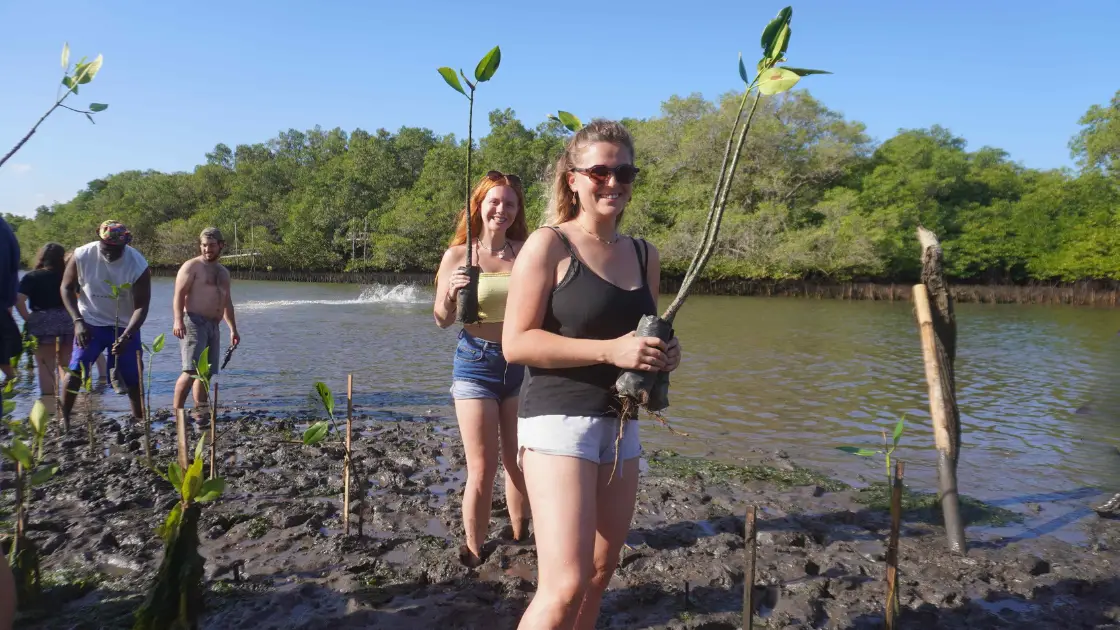
Bali is prioritizing quality tourism by implementing new regulations focused on environmental conservation and cultural preservation. Eco-certifications are now required for hotels and tour operators,which means they have to meet standards of sustainability. Fragile tourist hotspots such as Uluwatu and Ubud’s Monkey Forest also have limits on visitors to prevent over-tourism and environmental degradation. Additionally, Bali continues its plastic-free initiatives, banning single-use plastics in tourism businesses, reducing waste, and encouraging travelers to bring reusable items.
Carbon-Neutral and Carbon-Negative Travel

Image by siriwannapatphotos
A growing number of travelers are seeking carbon-neutral and even carbon-negative experiences to offset their environmental impact. Many tour operators now that also offer carbon offset donations, allowing visitors to contribute to reforestation and conservation projects. Many travelers are also opting for eco-friendly transport, such as electric scooters, bicycles, and solar-powered boats, to explore Bali in a more sustainable manner.
Eco-Tip:
Participate in mangrove planting programs at Bali Mangrove Forest, which helps absorb carbon emissions and protect coastal ecosystems
Regenerative Travel: Giving Back to Bali
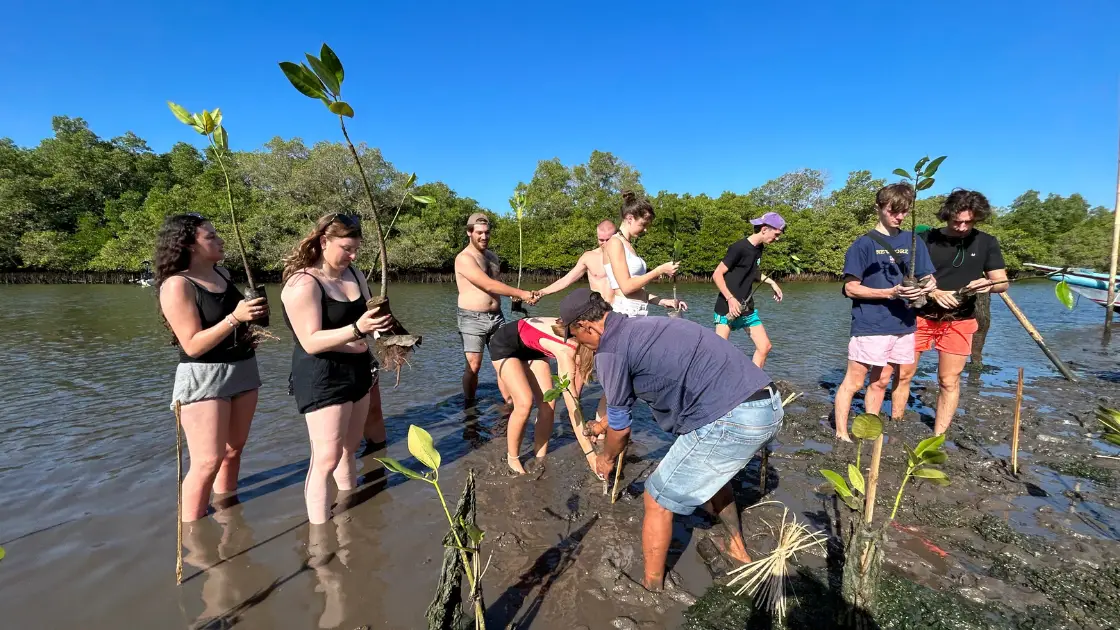
While sustainable travel aims to minimize harm, regenerative travel goes a step further by actively improving the environment and communities.
Travelers can take part in reef and mangrove restoration programs, where they contribute to ecosystem recovery efforts. Permaculture and agro-tourism are also gaining popularity, with travelers getting to see organic farming while encouraging sustainable agriculture. Additionally, ethical sanctuaries focused on wildlife protection provide opportunities for tourists to support rescued animals without promoting exploitative attractions.
Community-Centered Travel Experiences

Tourism that directly benefits local communities is becoming more popular, allowing travelers to engage with Balinese people in meaningful ways. Staying in locally owned accommodations rather than large hotel chains helps support Balinese families. Cultural exchange activities, such as learning Balinese dance, gamelan music, or traditional rice farming techniques, provide deeper insights into local life. Village-based tourism also fosters genuine interactions with locals, offering a more authentic experience while ensuring that tourism revenue directly benefits the community.
Support Local:
Explore Serangan Island, where travelers can engage with local fishermen and participate in community-based tourism programs.
Conscious Consumerism in Travel

Travelers are making more mindful choices, ensuring that their spending benefits local economies, ethical businesses, and environmental initiatives. Many tourists are opting for plastic-free travel kits, carrying reusable water bottles, cutlery, and shopping bags. Ethical shopping is also on the rise, with visitors choosing handmade Balinese textiles, ceramics, and organic skincare over mass-produced souvenirs. Additionally, sustainable dining options are expanding, with more restaurants sourcing local, organic ingredients and minimizing food waste.
Discover Sustainable Travel in Bali with Us

Bali Mangrove Adventure is a perfect example of how travelers can actively experience the sustainable travel trends of 2025. By joining the Mangrove Canoe Tour, tourists don’t just witness Bali’s stunning mangrove forests, they also play a role in environmental conservation.
Why Mangrove Canoeing is a Sustainable Choice
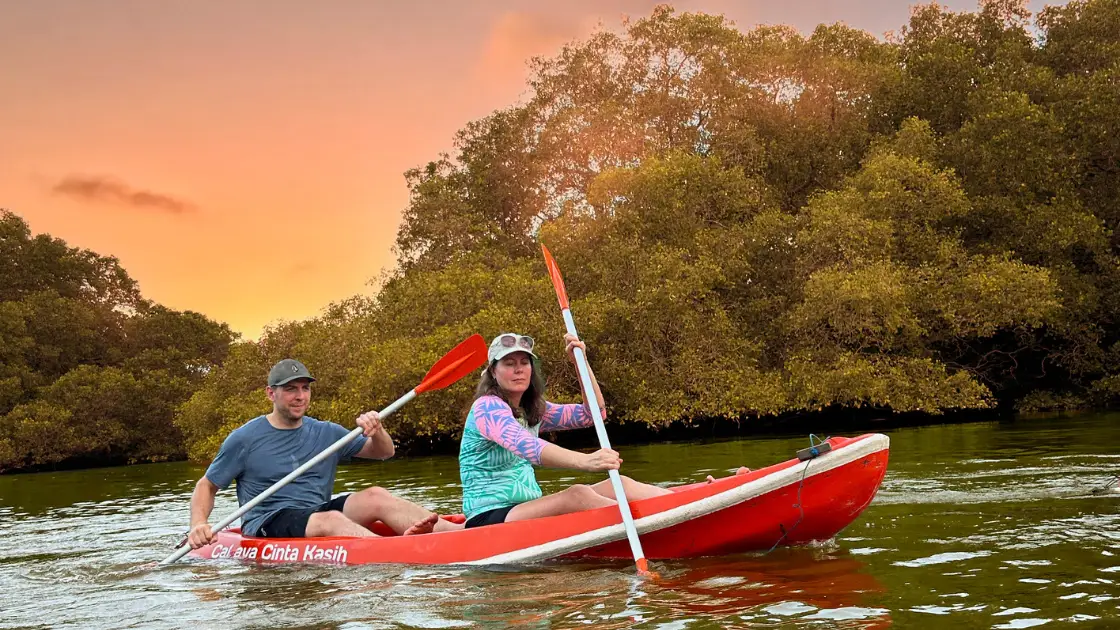
Mangroves absorb carbon emissions and protect coastal ecosystems
The tour follows low-impact tourism principles
Visitors engage with local communities, supporting eco-tourism efforts
For a more exclusive adventure, the Evening Mangrove Canoe Tour offers a peaceful journey under the golden hues of sunset. This experience allows travelers to witness the natural transition from day to night, making it a unique and meaningful eco-adventure.
By choosing eco-conscious travel experiences, visitors aren’t just enjoying Bali’s beauty, they are becoming part of a global movement toward responsible tourism. Sustainable travel is no longer just a trend; it’s a necessary step toward preserving Bali for future generations.
So, are you ready to explore Bali in a more meaningful way?

 EN
EN JP
JP


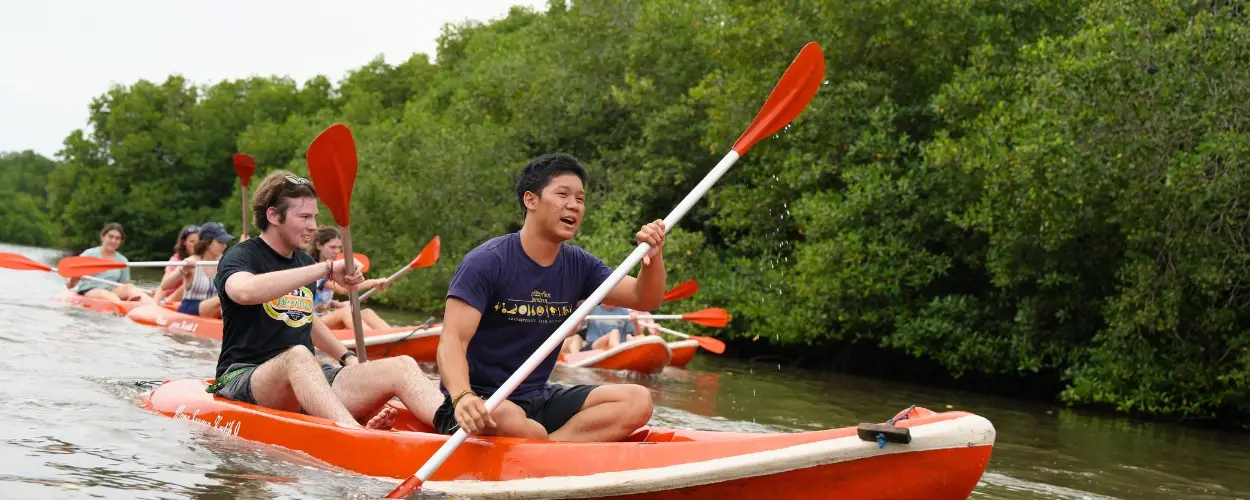

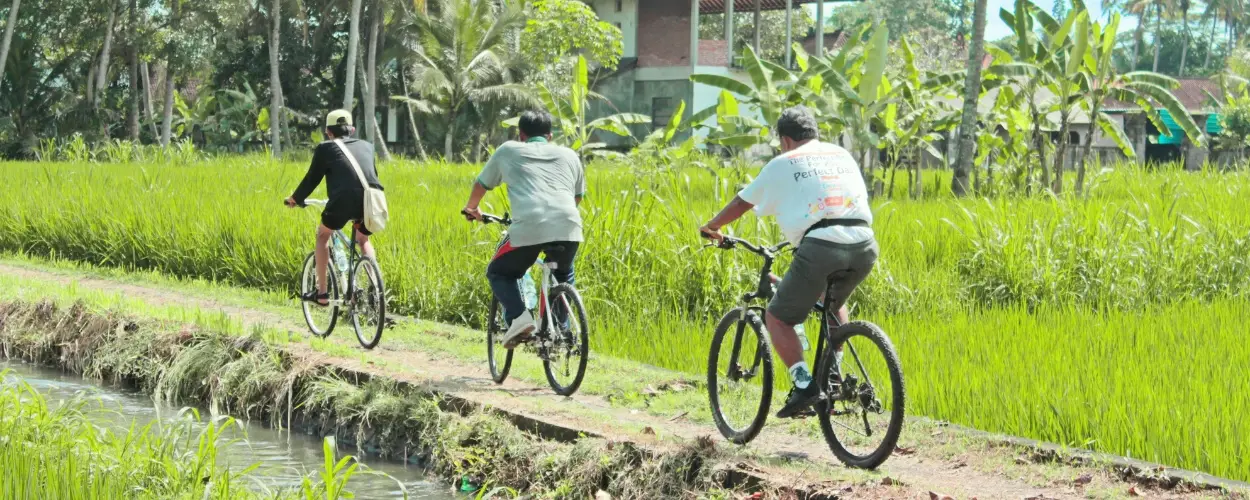
comments